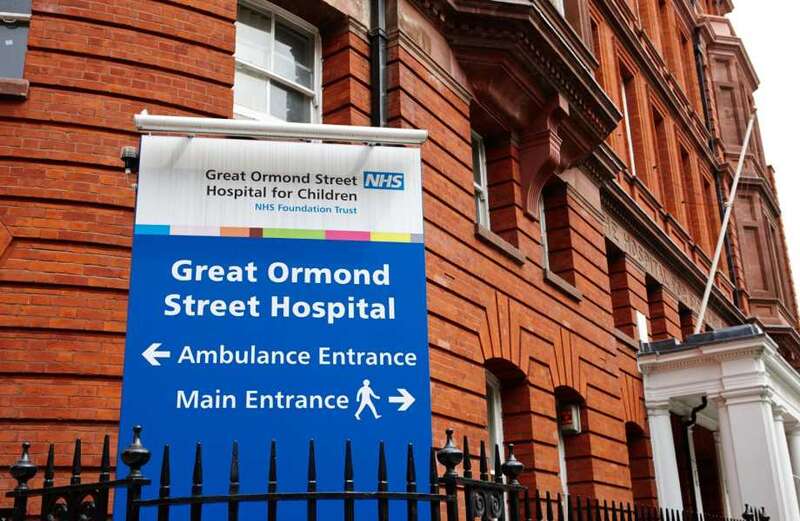A "FIT and healthy" teenager died during routine operation for an infected ear piercing, a coroner has heard.
Holly Fairchild, 16, didn't like a scar on her left ear caused by an infected cartilage piercing and was admitted to Great Ormond Street Hospital for surgery.


Holly, a "very active'" and talented footballer from Haddenham, a small village near Oxford, previously went under general anaesthesia with no issue, St Pancras Coroner's Court heard.
But on August 26 last year she died at Great Ormond Street Hospital two days after a routine appointment.
It was after the delicate surgery had gone smoothly and Dr Neil Bulstrode left theatre that Holly developed a severe form of laryngospasm.
 Spectacular New Year fireworks light up London sky as huge crowds celebrate across UK for first time in three years
Spectacular New Year fireworks light up London sky as huge crowds celebrate across UK for first time in three years
Doctors described it to her parents as her vocal cords having "slammed shut".
The side effect is common among children under general anaesthetic, explained Dr Lignos.
Normally, pressure and the use of propofol, an anaesthetic, will relieve the issue.
But in Holly's case this did not work.
She began to suffer from an associated condition called negative pressure pulmonary edema (NPPE), which draws fluid from the blood vessels into the lungs.
The use of another drug called succinylcholine, a muscle relaxant, which was kept 20 seconds away in a nearby fridge, also failed to halt the laryngospasm.
This led to a decrease in her oxygen levels and rapid deterioration, which sadly resulted in a hypoxic cardiac arrest, reducing blood to her brain.
Holly was taken to intensive care but tragically died two days later on August 25.
Holly grew up in a loving family, with two brothers and adoring parents who remembered her as a "confident, fun, and, sometimes, loud young lady" who "gave her best and never stopped smiling".
The "top goalscorer" loved animals and had already learned how to drive a tractor and digger, with her sights set on a driving license before she headed to a local sixth form.
 Robbie Williams poised to launch his own brand of energy drinks to rival Prime
Robbie Williams poised to launch his own brand of energy drinks to rival Prime
A family statement said: "She really was the best of us and so much more. We all miss our beautiful Hollypops beyond words.
"She has left an enormous hole in our hearts.
"We found this whole process difficult to go through. We had to ask the NHS Trust so many questions that still remain unanswered.
"We remain concerned, what should have been a routine operation led to an outcome that is devastating."
The court heard evidence that while mild laryngospasm is "very common" in children, the severe form Holly suffered is "less common" - and the chance of NPPE is 1/1000.
GOSH anaesthetic consultant Dr Leda Lignos gave evidence for over three hours in a marathon hearing.
She choked up at times while explaining the complex medical decisions and processes at the heart of Holly's tragic death.
Dr Lignos said this was the worst case of NPPE she had ever seen, and added she had only reached for succinylcholine to treat a patient once before in her 14-year career.
THREE-MONTH DEADLINE
Dr Brittain concluded the use of general anaesthesia was necessary, and noted there had been no complications in the past.
After difficulties arose with laryngospasms, he said the distance of the succinylcholine, some 20 seconds away in a fridge, would not have made a difference.
An ENT (ear, nose and throat) registrar rushed to help and a tracheostomy tube was inserted when Holly deteriorated and went into cardiac arrest.
With prolonged positive pressure given to balance out the NPPE, spontaneous circulation did return - but it was too late.
The family shared concerns about the tube after an X-ray showed it was slightly out of position, however Dr Brittain said it had no direct consequence on the sad outcome.
The coroner concluded: "Holly Fairchild died from a rare but recognised complication of general anaesthesia, in particular negative pressure pulmonary edema."
GOSH has three months to provide more information about the consent process, after which Dr Brittain may decide to issue a Prevention of Future Deaths Report (PFDR).
A spokesperson for GOSH said: “Our thoughts remain with Holly’s family at this awful time.
"Complications of this nature are extremely rare and devastating for all involved.
"GOSH followed the national standards for consent in anaesthetics but is committed to improving processes for patients and will work with the coroner and engage with the Association of Anaesthetists in relation to reviewing the consent process.”




































